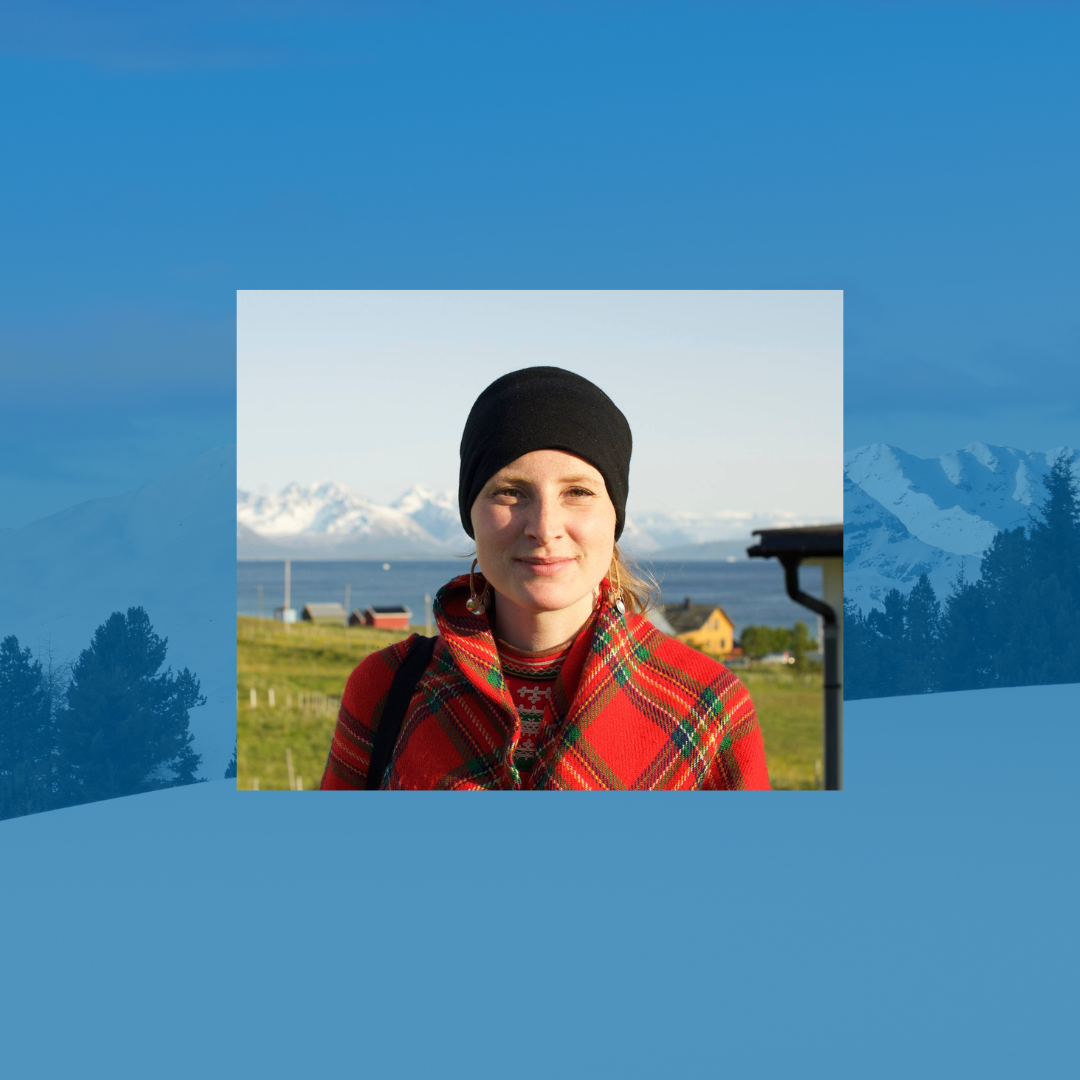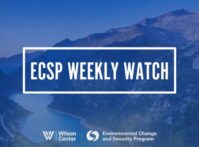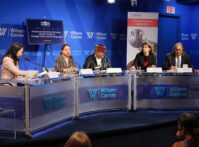-
The Arc | Climate Justice in the Arctic: Part 3
October 25, 2024 By Wilson Center Staff In today’s episode of The Arc, ECSP’s Claire Doyle and Angus Soderberg interview Eva Maria Fjellheim, a southern Saami researcher at the Arctic University of Norway, for the final episode of our mini-series focused on climate justice in the Arctic. We explore Eva Maria’s research on strengthening Indigenous peoples’ land rights in the face of growing climate and clean energy projects. She shares insights from legal battles in Norway and connects the encroachment on Saami land to similar trends with Indigenous communities in Latin America and elsewhere. Eva Maria also discusses how current climate policies may be missing the mark by failing to truly respect Indigenous rights. Select quotes from the interview are featured below:
In today’s episode of The Arc, ECSP’s Claire Doyle and Angus Soderberg interview Eva Maria Fjellheim, a southern Saami researcher at the Arctic University of Norway, for the final episode of our mini-series focused on climate justice in the Arctic. We explore Eva Maria’s research on strengthening Indigenous peoples’ land rights in the face of growing climate and clean energy projects. She shares insights from legal battles in Norway and connects the encroachment on Saami land to similar trends with Indigenous communities in Latin America and elsewhere. Eva Maria also discusses how current climate policies may be missing the mark by failing to truly respect Indigenous rights. Select quotes from the interview are featured below:In today’s episode of The Arc, ECSP’s Claire Doyle and Angus Soderberg interview Eva Maria Fjellheim, a southern Saami researcher at the Arctic University of Norway, for the final episode of our mini-series focused on climate justice in the Arctic. We explore Eva Maria’s research on strengthening Indigenous peoples’ land rights in the face of growing climate and clean energy projects. She shares insights from legal battles in Norway and connects the encroachment on Saami land to similar trends with Indigenous communities in Latin America and elsewhere. Eva Maria also discusses how current climate policies may be missing the mark by failing to truly respect Indigenous rights. Select quotes from the interview are featured below:
On the Saami struggle over their traditional land
“For reindeer herding to be able to continue, it needs this access to lands and vast lands because it’s a nomadic form of using the landscape and it depends on this seasonal migration, also to be able for the reindeer to access these natural and free pastures, which is a rare form of land use today.”
“But we saw this rapid expansion on Saami reindeer herding lands, and not only in Norway, but throughout the whole Saami homelands. We’re now being exploited by wind energy as well, at least in the Norwegian context. It is there where the wind blows the hardest. But these are important grazing lands. And not only that, but the land, an area where the reindeer live and move. So, this rapid expansion was a challenge in the sense that the mountain areas are one of the last refuges for the reindeer.”
On how the encroachment on Saami land and livelihoods fits within the concept of “Green Colonialism”
Indigenous peoples bear the double burden of climate change. And that has been pointed out by the global indigenous movement. Indigenous people’s traditional livelihoods are those that are most affected by climate change, which is also a result of historical dispossession and extraction of their land.
In earlier times, it was maybe other kinds of arguments for expanding on Saami lands. such as the need to develop infrastructure and so on after the Second World War. But now it is this kind of climate narrative or this moral imperative to sacrifice something for the greater good.
I think it’s important to acknowledge this historical trend of a minority having to sacrifice something for the majority in this case. When we are talking about the green transition, this green colonial concept is useful because it helps us to see how the “greenness” of something does not necessarily change the historical continuation of the way that land is still being taken and the way land grabs are being justified by a paternalist view.
On the legal battle for Saami rights
It’s the first time that any Saami community has won the Supreme Court in a case concerning human rights violations from an independent industry development on reindeer herding land. What the court says here is that when we are talking about human rights, you cannot strike that kind of balance between political priorities. The ruling is quite clear that this is a violation of the Saami community’s right to enjoy their culture and, in this case, to keep practicing reindeer herding.
This process ended in an agreement, but again, the communities were quite clear in their press release that they were under strong pressure to negotiate, threatened with new long bureaucratic and legal processes that they would not know the outcome of. So, it was negotiating with a pistol against the head, so-to-say.
On violence against indigenous rights activists
In the Nordic countries, we don’t struggle with direct violence towards activists, or you don’t risk being killed for expressing your opinion or protesting in the street. If you compare it to many countries in other indigenous geographies in the world, especially the areas that I know in Latin America.
In a context of direct, violent threats on your life, or as we have seen, Saami are being pushed into an agreement because the alternative is to have to stop reindeer herding. Where the alternative is to be ignored or rendered invisible, which was the worst form of racism, as one herder said. Not being recognized for what we are and knowing that our knowledge and way of using the landscape are not valued.
“They can kill us with dialogue.” This is a reference to all these dialogues that Saami reindeer herding communities engage in and also indicates this violent metaphor—we are not actually being killed, but we experience a devaluing Saami culture and knowledge and values.
On what needs to happen to strengthen Saami rights
It is important to recognize that there is not a shared understanding of the problem at hand and there’s not a shared understanding of the solution.
The problem is when you view it through an industry lens, you only think about coexistence. For example, if it’s only seen as the meat-producing business, then you can say, okay, if the reindeer loses this land, then you can compensate with other land, we can produce more effectively new kinds of food that the reindeer can eat, and the reindeer doesn’t need to do this extensive migration and need this vast access to land.
It’s not only about the culture, but it’s also a way of stewardship of the land that needs to be done to be able to save the planet from both climate and ecological disaster.
According to some institutions, it’s the ignorance of the indigenous communities that do not understand that expansion is necessary to save the planet—they say it very bluntly. And this is the paternalist aspect of climate change policies, and also the paradox. That introducing what is being named as a green industry is destroying one of the most sustainable ways of using the landscape.
Photo credit: The Arc graphic
 A Publication of the Stimson Center.
A Publication of the Stimson Center.







